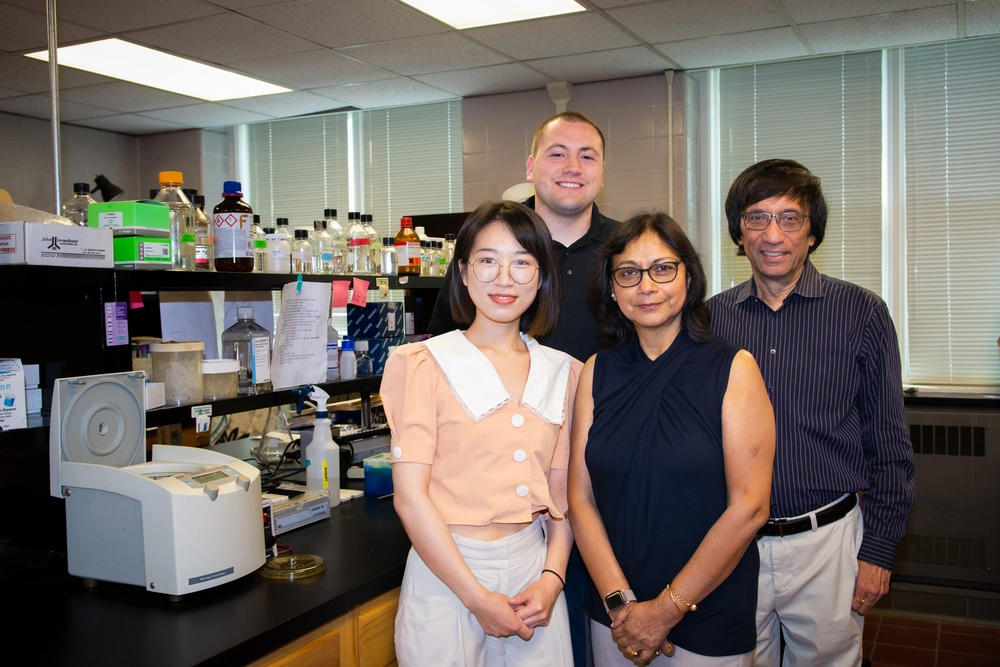
During the early stages of pregnancy, the uterus undergoes a remarkable transformation to create a tissue environment that facilitates embryo implantation. This intricate process, like a dance choreographed by hormones produced by the ovaries, must be in sync with the embryo’s development to be successful.
Deciphering the molecular basis of cell-cell communications during early pregnancy has long been a challenge of reproductive scientists. New research from the University of Illinois further illuminates the fascinating dialogue between the developing embryo and endometrium by shedding new light on the important roles played by extracellular vesicles produced and secreted by endometrial cells.
The article, “Extracellular vesicles secreted by human uterine stromal cells regulate decidualization, angiogenesis, and trophoblast differentiation,” was published this month in Proceedings of the National Academies of Science (PNAS).
Authors included Milan Bagchi, Deborah Paul Professor of Molecular & Cellular Biology and Director of the School of Molecular & Cellular Biology; Indrani Bagchi, Billie Field Professor of Comparative Biosciences in the College of Veterinary Medicine; Qiuyan Ma, a 2022 PhD graduate of Molecular and Integrative Physiology (MIP); Jacob Beal, PhD student in MIP; Athilakshmi Kannan, research scientist in the Department of Comparative Biosciences; Arpita Bhurke, postdoctoral fellow in the Carl Woese Institute of Genomic Biology; and Jie Yu and Robert Taylor from University at Buffalo, Jacobs School of Medicine and Biomedical Sciences.
In the study, the authors show that nanosized extracellular vesicles generated by human endometrial stromal cells carry a variety of molecular cargo that augments several critical processes involved in establishing a proper maternal-fetal interface during early pregnancy. These include differentiation of endometrial cells that allow implantation, uterine angiogenesis (the formation of new blood vessels that supply nutrients to the growing embryo), and development of extraembryonic trophoblast cell lineages that are essential for the formation of a fully functional placenta. Improper regulation of these important processes can lead to complications with placenta development, affecting fetal growth and survival.
In this article, researchers demonstrated that the extracellular vesicles secreted by differentiating uterine stromal cells support communication between various cell types within the uterus. The vesicles can enter recipient cells and deliver their cargo to alter cellular functions to ensure coordination of endometrial differentiation and angiogenesis with trophoblast function during the progressive phases of pregnancy.

